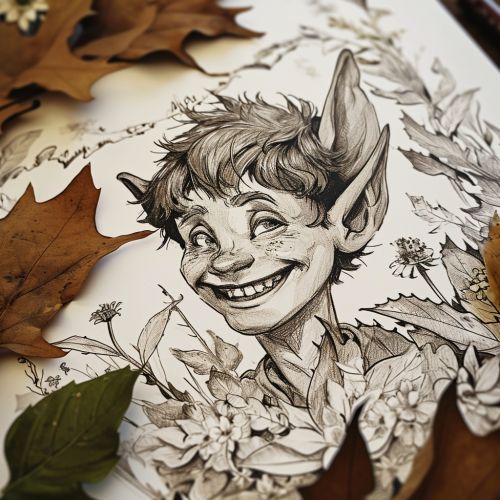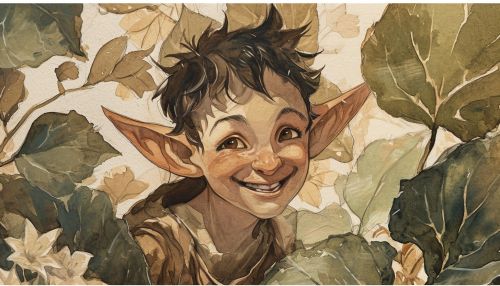Puck (mythology)
Origins and Etymology
The term "Puck" is derived from the Old English "puca" or "pouke", which means "devil" or "evil spirit". This term has cognates in other Germanic languages, such as the Old Norse "púki", which refers to a nature spirit or demon. The term is also related to the Irish "púca", a shape-shifting creature in Celtic mythologyCeltic Mythology.


In English Folklore
Puck is a prominent figure in English folklore, often depicted as a mischievous nature spirit or fairy. He is known for his pranks and tricks, which often involve shape-shifting and invisibility. Puck's antics are typically harmless, but they can cause confusion and chaos. He is often associated with the natural world, particularly the forest, and is sometimes seen as a protector of nature.
In some stories, Puck is a solitary figure, while in others he is part of a group of similar spirits known as the "Puck's kin". These spirits are often depicted as being playful and capricious, much like Puck himself.
In Literature
Puck has appeared in numerous works of literature throughout the centuries. One of the most famous depictions of Puck is in William Shakespeare's play "A Midsummer Night's Dream"A Midsummer Night's Dream, where he is a servant of the fairy king Oberon and plays a central role in the play's plot. In this play, Puck's mischievous nature and magical abilities are used to comic effect, as he causes confusion and misunderstandings among the human characters.
Puck has also appeared in other works of literature, such as Rudyard Kipling's "Puck of Pook's Hill" and its sequel "Rewards and Fairies", where he tells stories of English history to two children. In these stories, Puck is depicted as a wise and ancient spirit who has witnessed many events throughout history.
Cultural Significance
Puck's enduring popularity in folklore and literature reflects his cultural significance. As a trickster figure, he embodies the unpredictability of nature and the human tendency towards mischief and playfulness. His association with the natural world also makes him a symbol of the wild and untamed aspects of nature.
In modern times, Puck has become a symbol of the spirit of fun and rebellion. His image is often used in popular culture, such as in comic books, films, and video games, where his mischievous nature and magical abilities are often emphasized.
